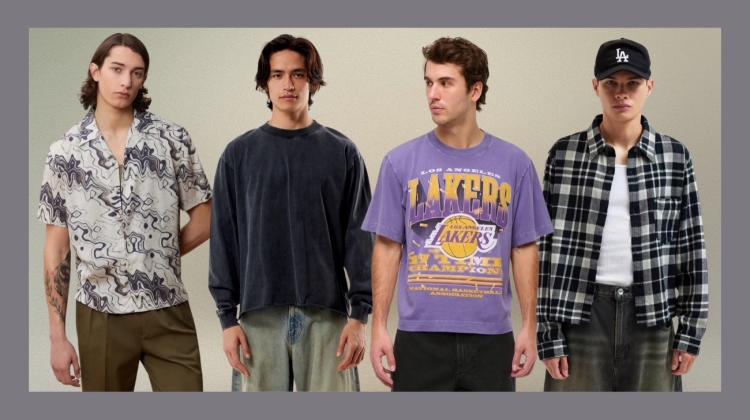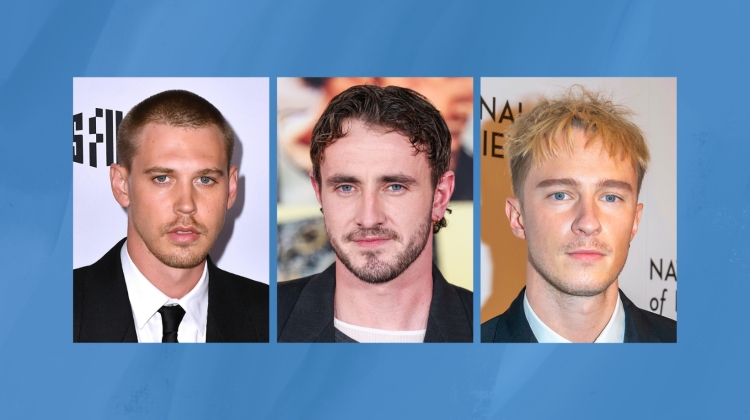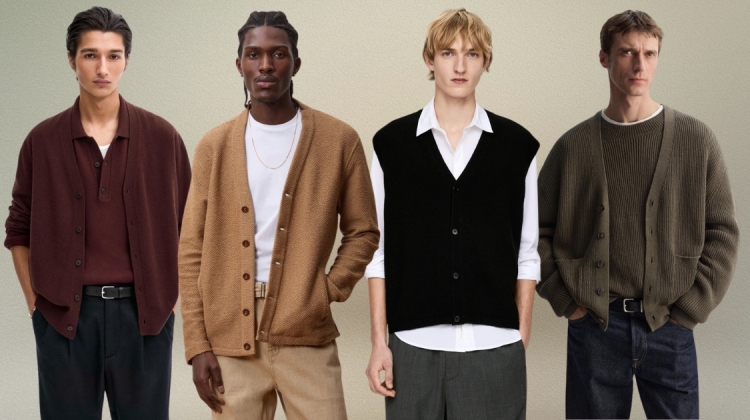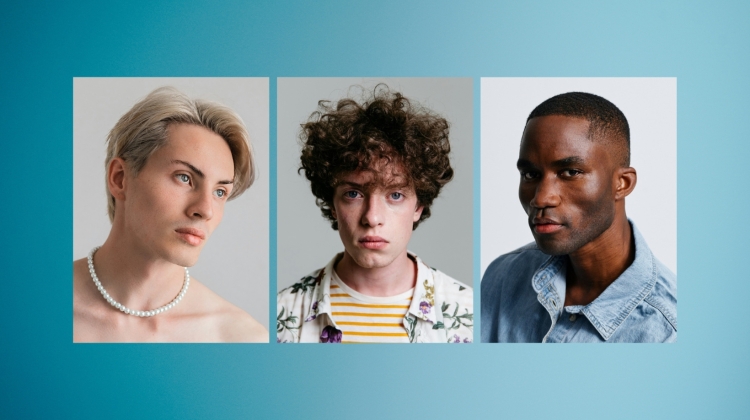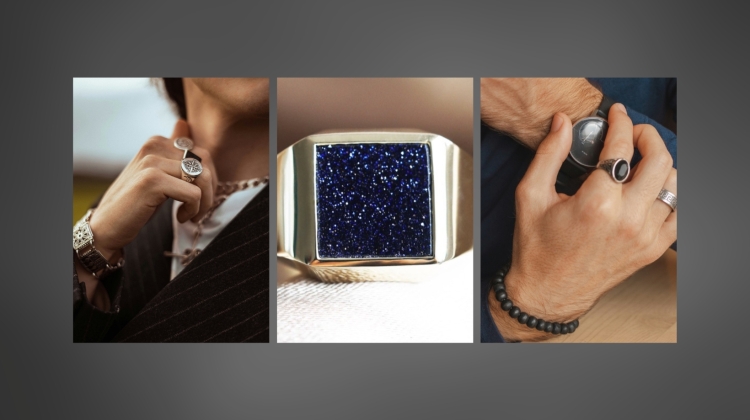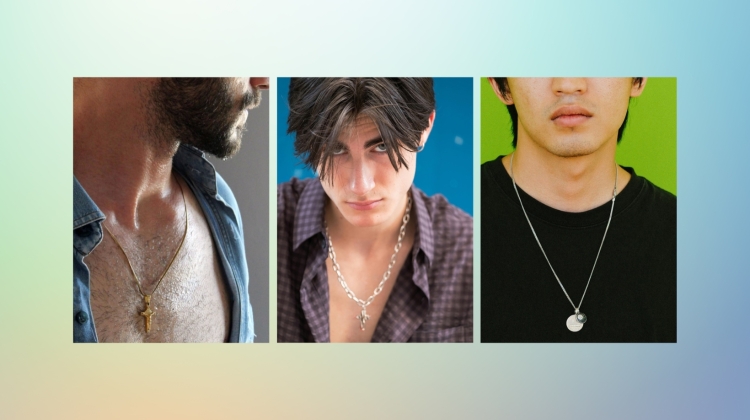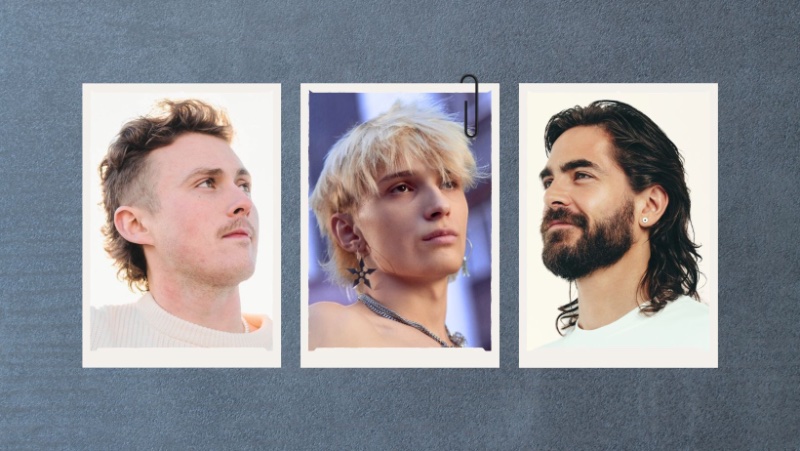
The men’s mullet haircut, a rebellious long hairstyle, symbolizes bold identity and unapologetic confidence. Characterized by its shorter front and sides and longer back, the modern mullet has been embraced and adapted by men in the United States, turning it into a global phenomenon.
Men’s Mullet Haircuts: Popular Styles
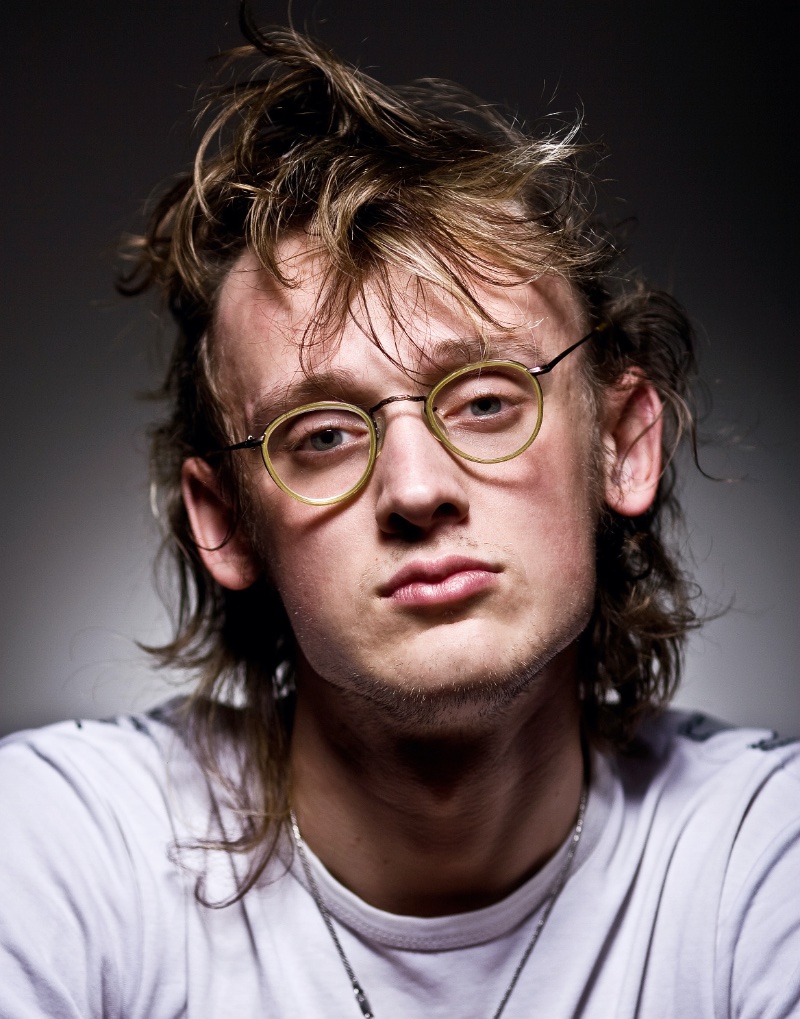
The mullet’s ability to blend into various narratives while offering a canvas for personal expression has made it an excellent mode of self-expression. This modern haircut inspires hairdressers and style enthusiasts alike, whether it’s the classic, unrefined mullet or a modern interpretation that leans towards perfection.
Curly Mullet
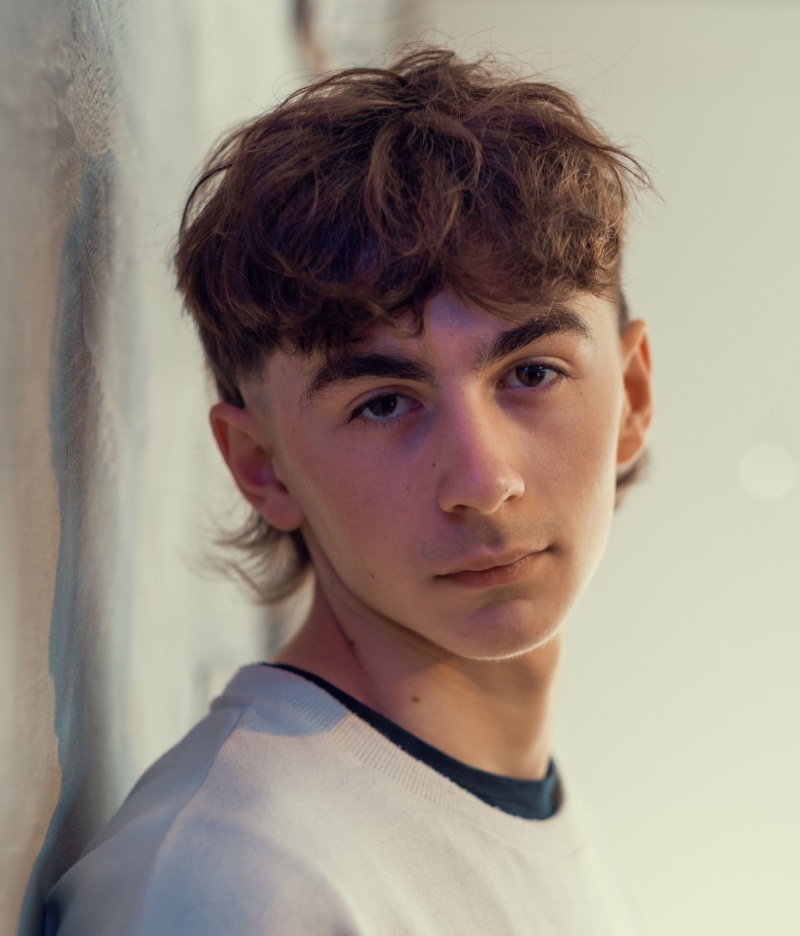
The curly mullet is a fresh take on the traditional style that adds a playful twist with its natural curls. This version embraces the inherent texture of curly hair, allowing the curls to form a soft, tousled canopy over the head while the hair at the back cascades down in a more controlled flow.
The contrast between the lively curly hair at the top and the smoother lines of the lengthier back portion encapsulates a modern approach to the mullet. A light curl-enhancing product may be applied to maintain the curls’ buoyancy and shape, and the occasional use of a hair clipper can keep the back neat.
Curly Volume Wolf Cut
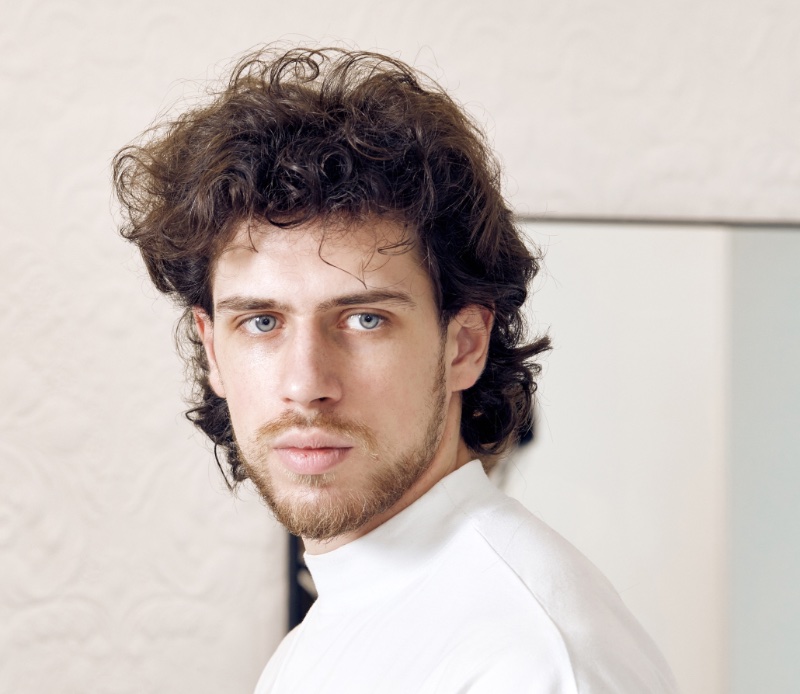
The curly volume wolf cut is a bold statement, combining the layered energy of the shag with the mullet’s iconic business-in-the-front, party-in-the-back philosophy. The curly volume at the top and front gives way to a more subdued yet still voluminous cascade of curls at the back, creating a rebellious and styled mullet hairstyle.
The wolf cut mullet’s artful blend of textures makes it a standout. The curls bring a playful, artistic element that the traditional mullet lacks, while the distinct mullet shape adds an edgy, contemporary touch to the natural curls.
To achieve the mullet style’s full potential, it is key to use products that enhance curl definition without weighing down the hair, allowing for a voluminous yet manageable mane.
Fringe Mullet
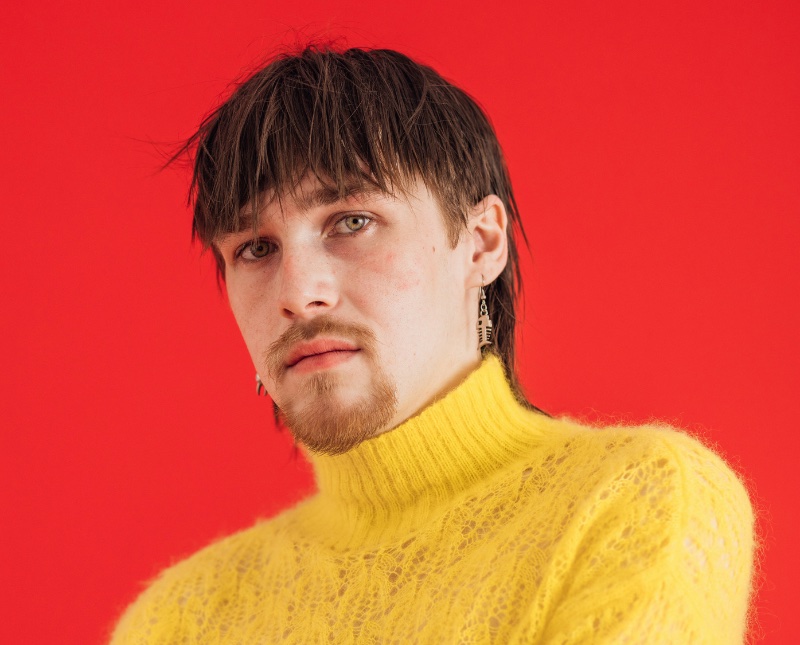
The fringe mullet modernizes the classic mullet with a choppy fringe, adding a fresh, edgy look to the timeless cut. The fringe, textured and falling casually over the forehead, introduces an element of grunge that plays well with the mullet’s intrinsic nonchalance.
The hair at the back retains the signature length, but the unstructured bangs give this style a contemporary twist. Styling this straight hair mullet might involve a light application of hair wax or pomade to enhance the texture of the fringe. In contrast, the remaining hair is more natural to emphasize its movement and volume.
High Volume Mullet
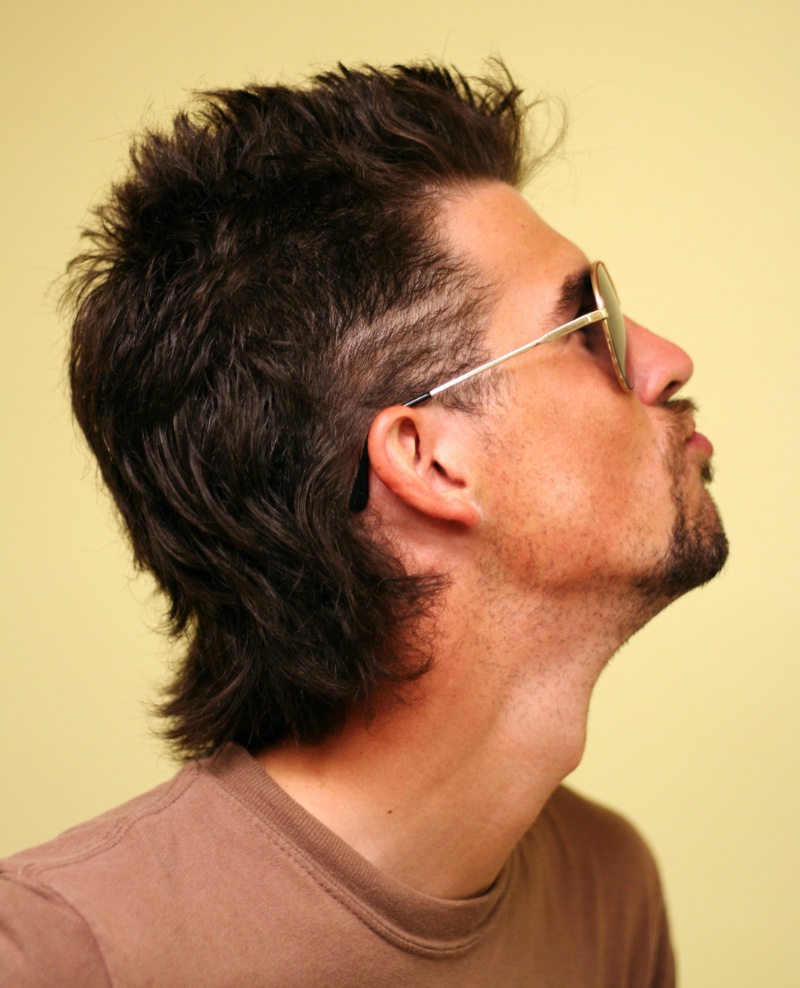
The high-volume mullet is all about embracing height and texture. This style takes the mullet’s signature silhouette—shorter at the front and sides, longer in the back—and injects it with a generous boost of volume.
The hair is often layered to maximize body and movement, creating a wild, free-flowing look that returns to the mullet’s heyday while staying fresh and contemporary. To keep the volume at its peak, a blow dryer and perhaps a touch of mousse can lift the roots and give the hair a lasting body.
This style is also easily transformed into a spiked mullet.
Modern Mullet
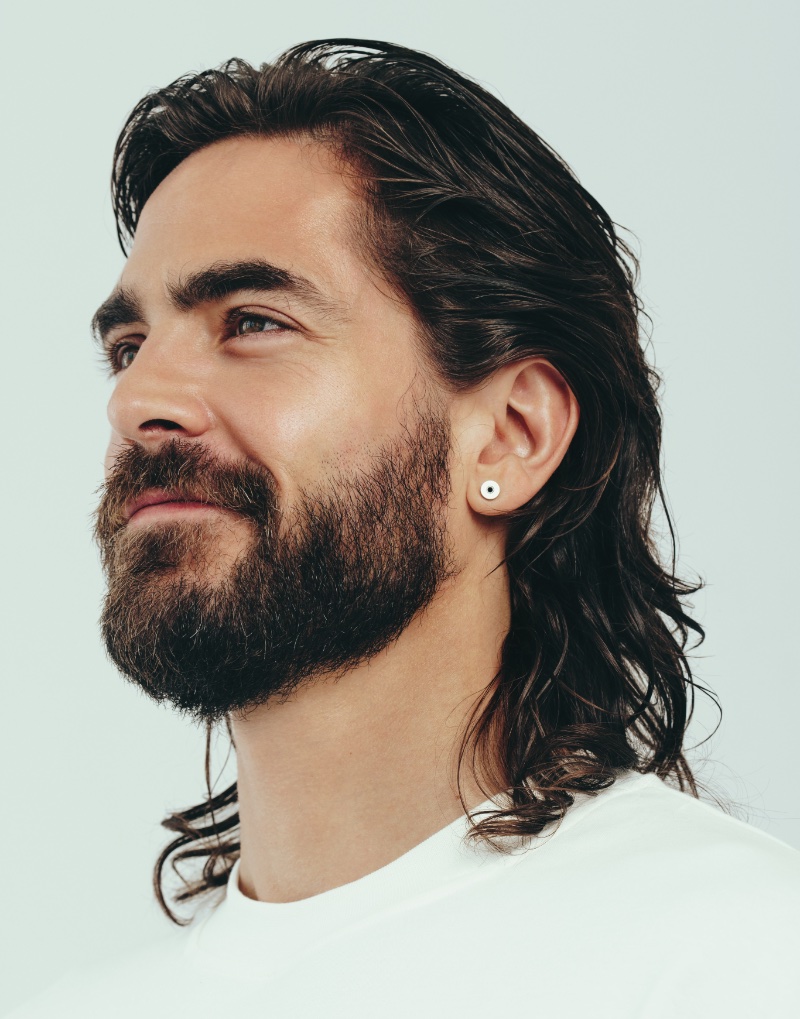
The modern mullet is a reimagined take on a classic style that seamlessly blends tradition with a touch of modernism. This contemporary variant maintains the characteristic long hair at the back but adds more texture and volume up top, moving away from the stark contrasts of its predecessors.
Stylists often use scissors and a hair clipper to create a graduated, layered hair effect that flows into the length at the nape. The front and sides are typically styled with hair wax or pomade to achieve a sleek, controlled look that contrasts the more relaxed vibe of the back.
The Mullet Fade with Bangs
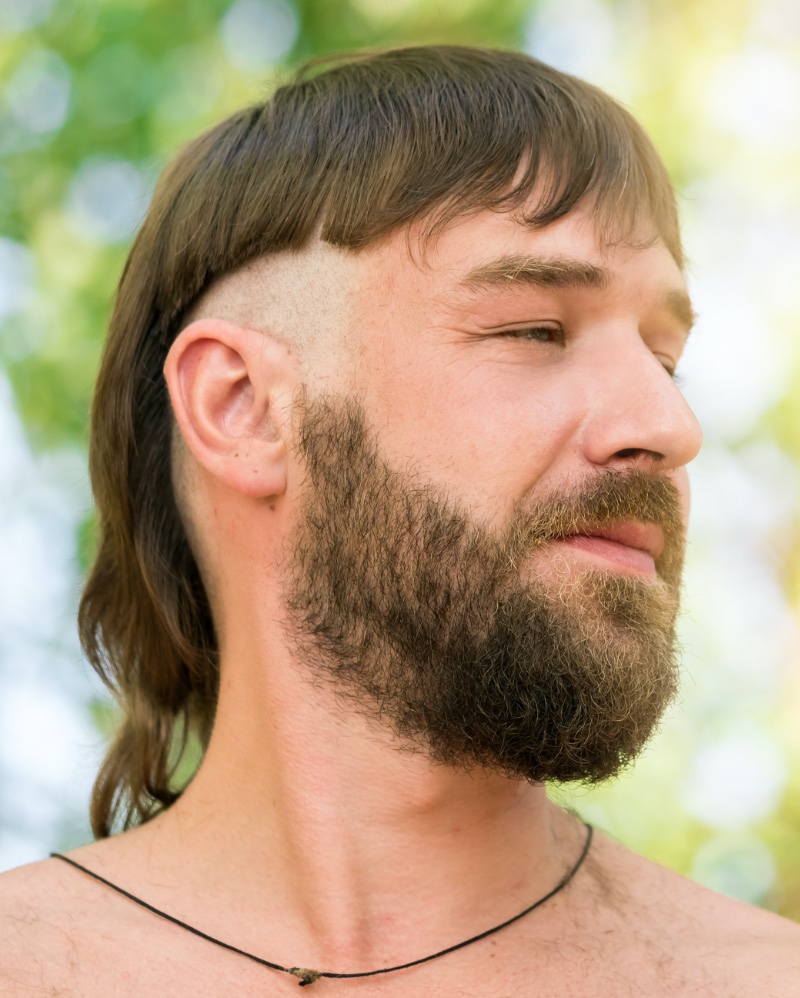
The mullet fade with bangs offers a contemporary spin on the classic mullet by incorporating a sharp side fade or undercut. The top is characterized by bangs, cut to create a striking frame for the face.
These bangs add a new dimension to the traditional mullet silhouette, infusing it with current trends in hair fashion. The transition from the close-cropped fade to the elongated back is seamless, showcasing the stylist’s skill with scissors and hair clippers.
Maintaining this look typically involves regular trips to the barber for the upkeep of the fade, ensuring that the crisp contrast between the short and long sections remains distinct. The bangs may require styling with a small amount of pomade or hair wax to hold them in place.
Mullet Mohawk
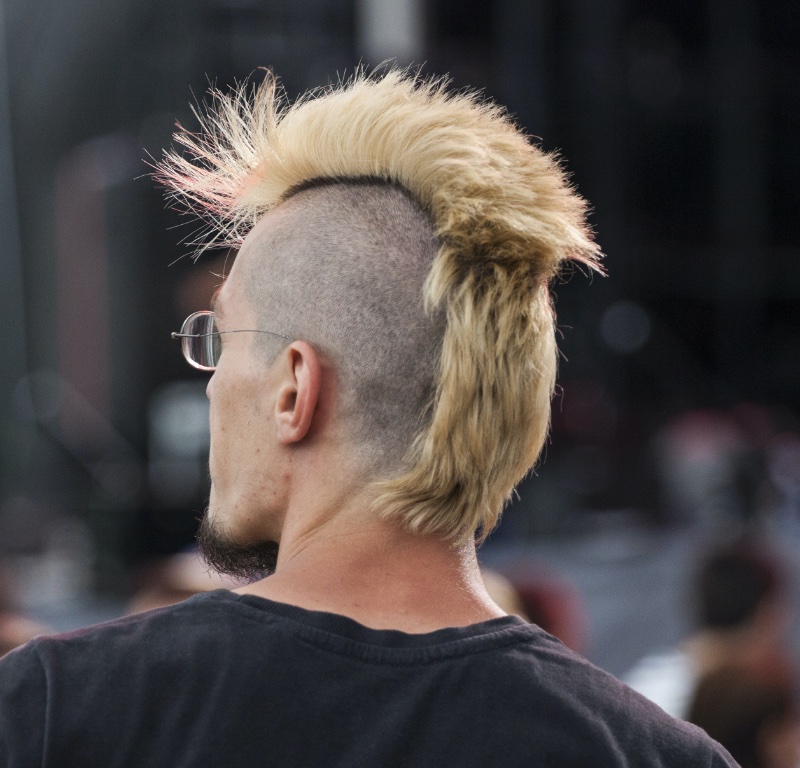
The mullet mohawk is a dynamic blend of the mullet and the mohawk, delivering an audacious statement that channels the spirit of both hairstyles. It represents a unique subculture where the mullet’s party-at-the-back ethos meets the mohawk’s radical boldness.
The mohawk mullet’s sides are cropped close, often with a fade highlighting the stark transition to the spiked or tousled strip of hair atop the head. This centerpiece extends into the classic mullet fall at the back, creating a striking visual contrast that is modern and reminiscent of punk rock aesthetics.
For daily styling, a strong-hold product can help achieve the desired height and shape, ensuring the mohawk stands out confidently.
Mullet Undercut
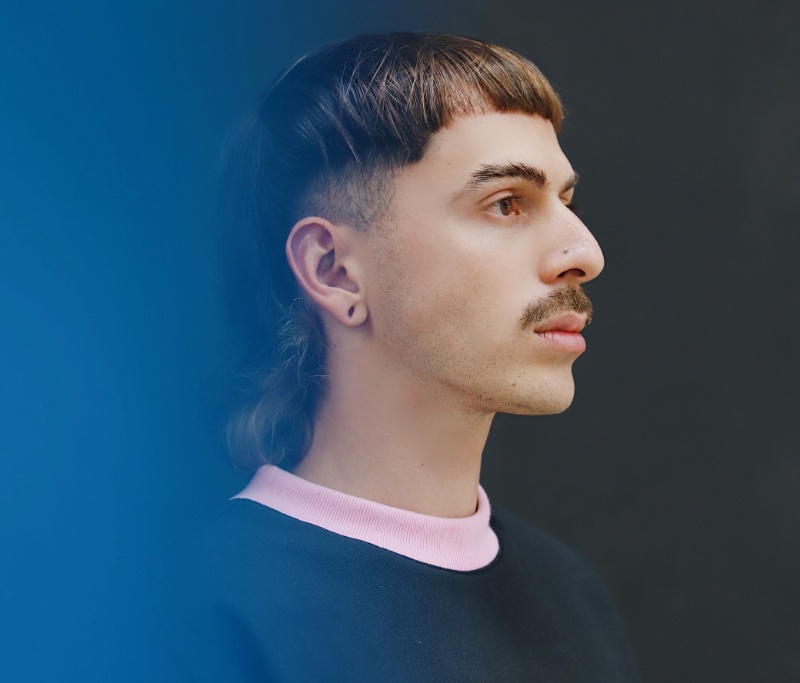
The mullet undercut reimagines the classic mullet with a sharp, contemporary edge. The hair at the front and sides is cut even shorter than the traditional style, while the back retains the iconic mullet length.
The juxtaposition of the closely cropped sides and the elongated back creates a striking, defiant profile. In this rendition, the top hair often features a subtle length, enough to style but short enough to contrast dramatically with the back.
The undercut mullet can be left natural for a softer appearance or styled with products for a more defined, standout finish.
Textured Mullet
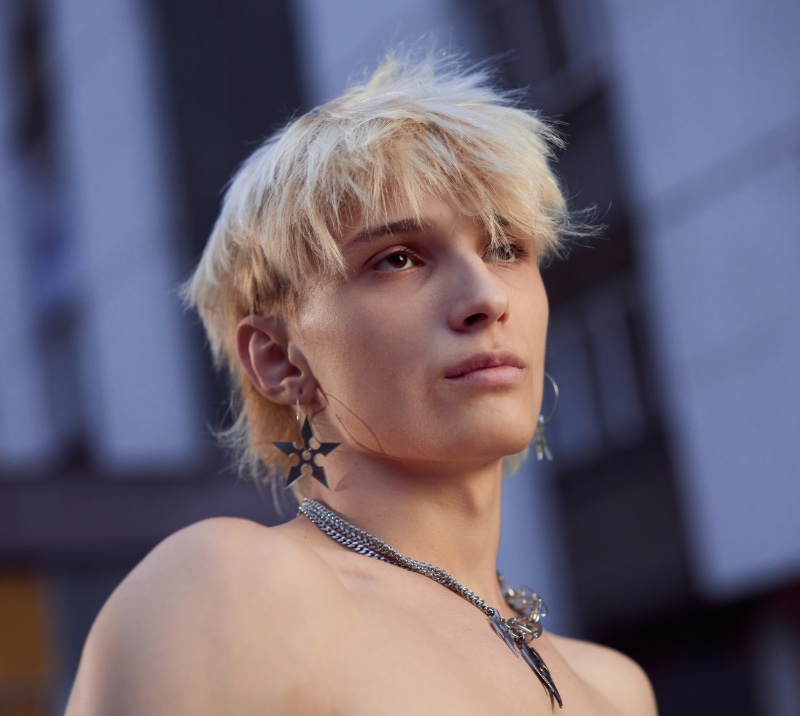
The textured mullet emphasizes creating a sense of depth and movement through varied lengths and styling techniques. The cut combines shorter layers at the top with the signature long hair at the back.
Stylists achieve this effect with careful trimming and sometimes thinning shears to add texture without reducing the overall volume. Light use of hair products like wax can define the layers to maintain the look, and the occasional use of a hair clipper for the edges keeps the style looking sharp.
Wavy Mullet

The wavy mullet is an ode to the flexibility of this iconic hairstyle, adapted for wavy hair textures. It features a naturally tousled top that transitions into a more relaxed, flowing back, allowing the hair’s inherent waves to add character and movement to the look.
Maintenance involves a light touch and minimal product use to define the waves and retain the hair’s natural volume. A trim now and then ensures the silhouette stays fresh, and the waves remain unburdened by excess length.
The Wet Look Mullet
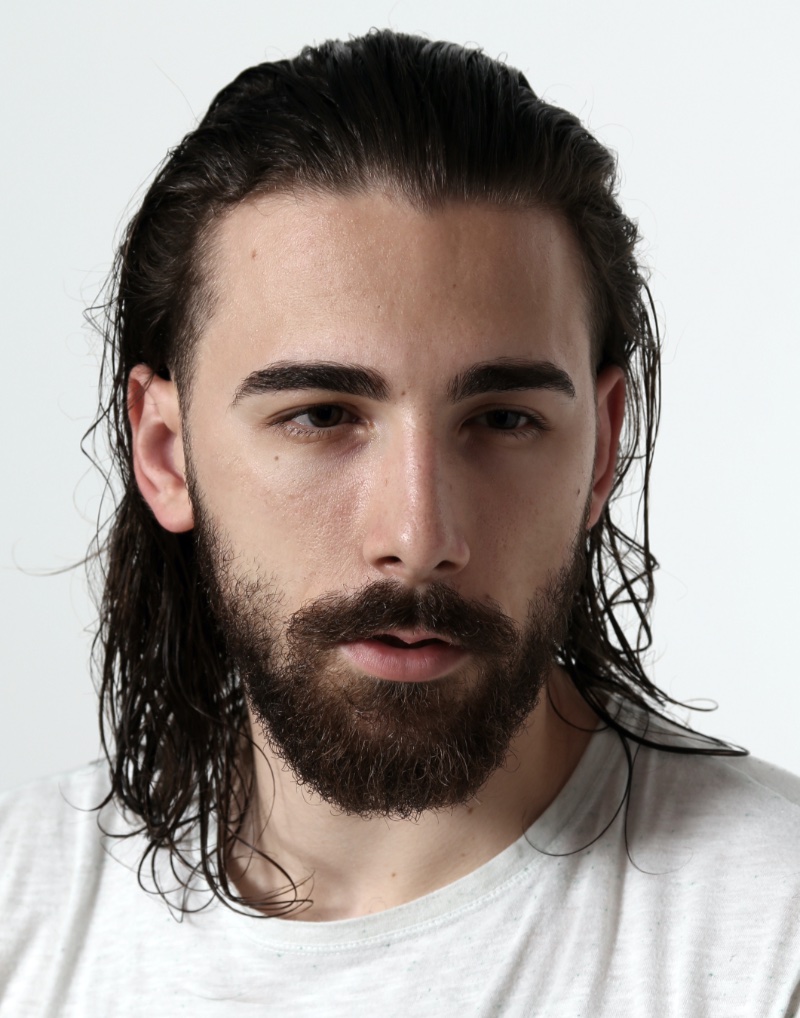
The wet look mullet reflects the hairstyle’s adaptability and resurgence in contemporary fashion. This style is defined by its slicked-back appearance, achieved through styling products such as pomade or hair wax, which impart a glossy, wet finish.
The top is often combed back smoothly, creating a sleek surface that leads to the longer, damp tendrils at the back. This look plays on the contrast between the structured, almost sculptural quality of the top and the unrestrained, casual fall of the hair at the back.
Windswept Mullet
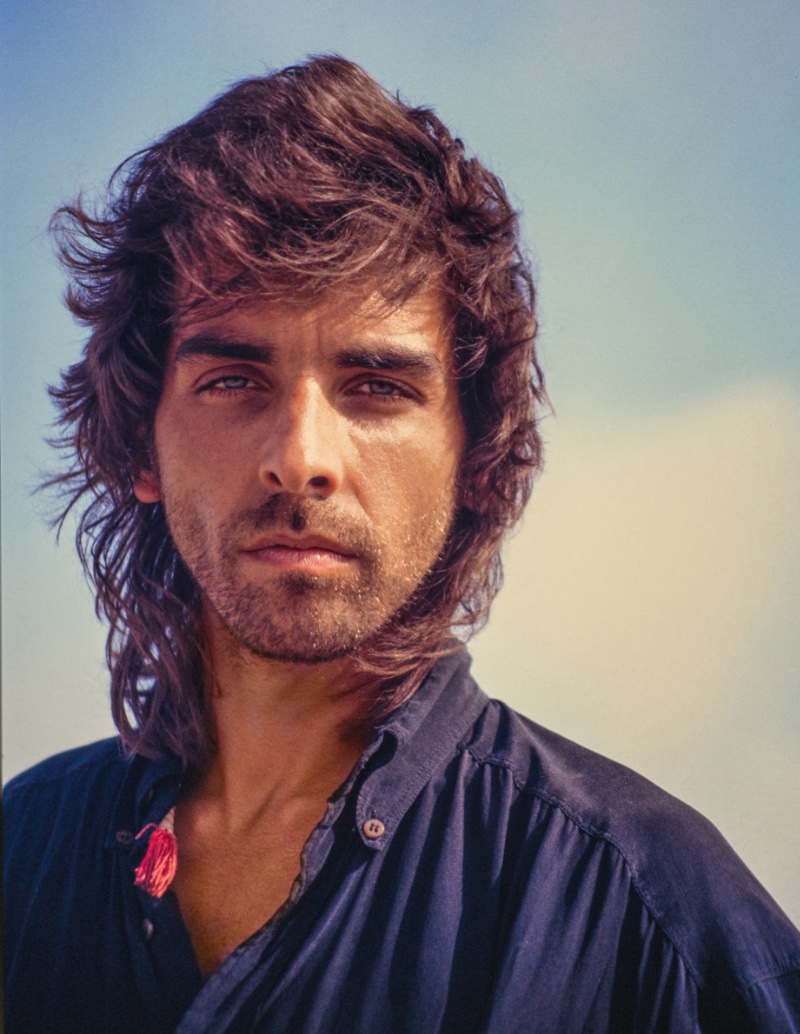
The windswept mullet features a voluminous top that gives it an air of wild sophistication. The layers are expertly cut to create a sense of movement as if the wearer has just walked through a gentle breeze.
The length at the back remains true to the mullet’s signature style, but the tousled, seemingly effortless volume at the crown sets this look apart, suggesting a blend of casualness and deliberate styling.
Famous Mullets
Billy Ray Cyrus
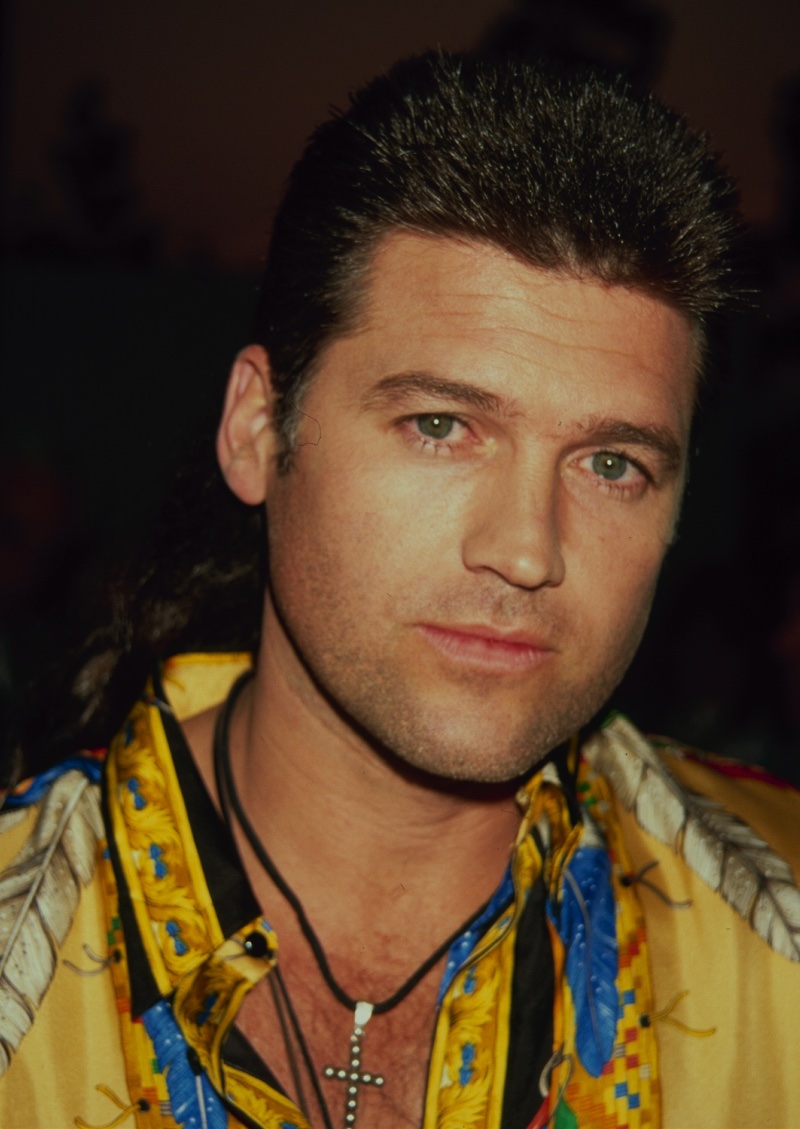
Billy Ray Cyrus’ mullet became one of the most emblematic hairstyles of the 1990s, especially within the country music scene. His version of the mullet featured a voluminous, textured top and an unmistakable full, long back that became synonymous with Cyrus’ image during the height of his Achy Breaky Heart fame.
The Billy Ray Cyrus mullet captured the rebellious spirit of country music and its penchant for individuality. It was a style that demanded attention and became a part of his on-stage persona, resonating with fans and becoming a pop culture phenomenon in its own right.
Brad Pitt
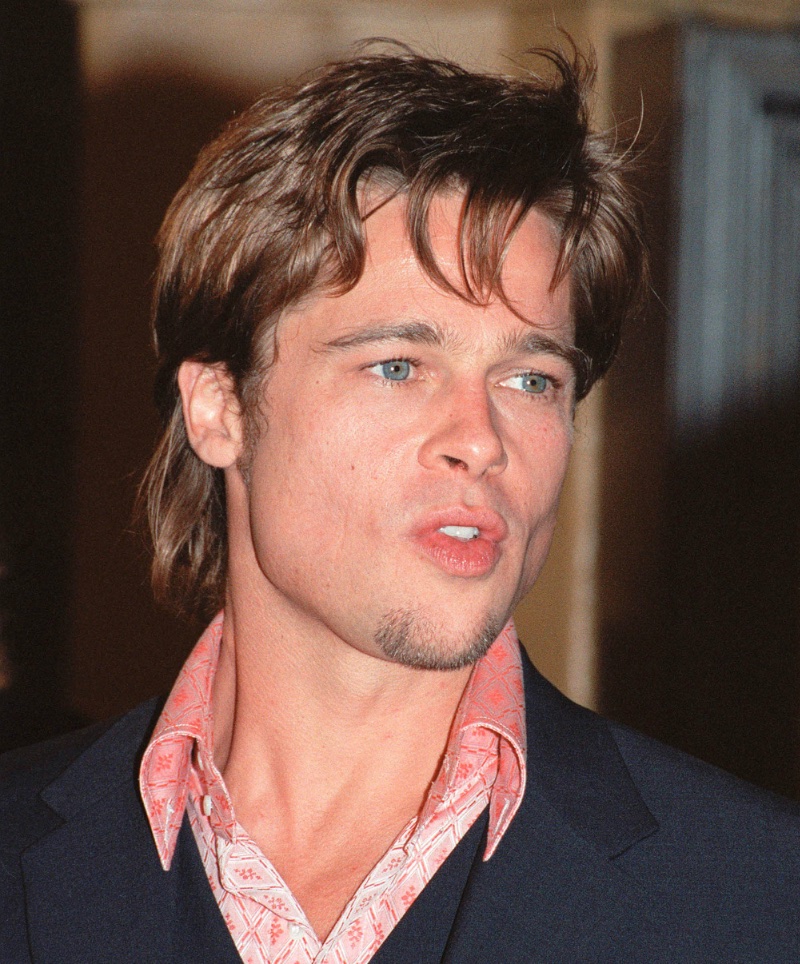
Brad Pitt, the quintessential Hollywood star, has sported various hairstyles throughout his career, each becoming a cultural touchstone in its own right. In 1999, Pitt was seen with a hairstyle that married the casualness of a mullet with the polished aesthetic of mainstream celebrity fashion.
This look captured the essence of the late ’90s: a period marked by a relaxed approach to traditional glamour and a growing preference for personal expression in style.
Pitt’s mullet from this era was not as extreme as the classic mullets of the past, but it still featured the defining elements: shorter hair at the front and sides with length at the back. What made Pitt’s version stand out was its textured, layered look, which added a touch of sophistication to the otherwise casual hairstyle.
David Bowie
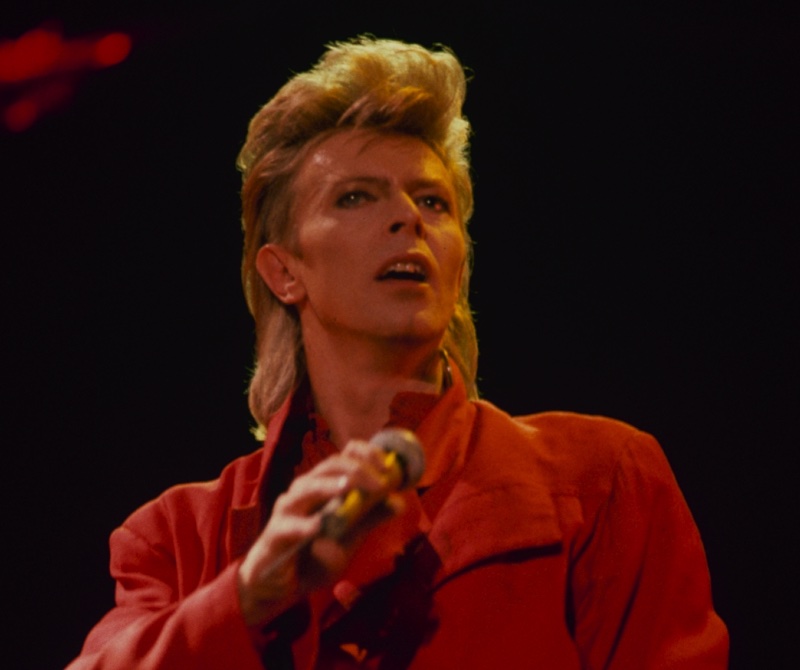
David Bowie, the chameleon of rock, sported various iconic looks throughout his illustrious career, each accompanying a different musical era. In 1987, his mullet had evolved from the vibrant red Ziggy Stardust era to a more subdued style, yet it still retained that unmistakable Bowie flair.
This mullet was softer, with a natural color, and although it was less theatrical, it remained a symbol of his constant reinvention and artistic expression. Bowie’s mullet at this time reflected the changes in his music and personal style, showcasing a more mature and refined aesthetic while maintaining the edge and innovation he was known for.
Jacob Elordi
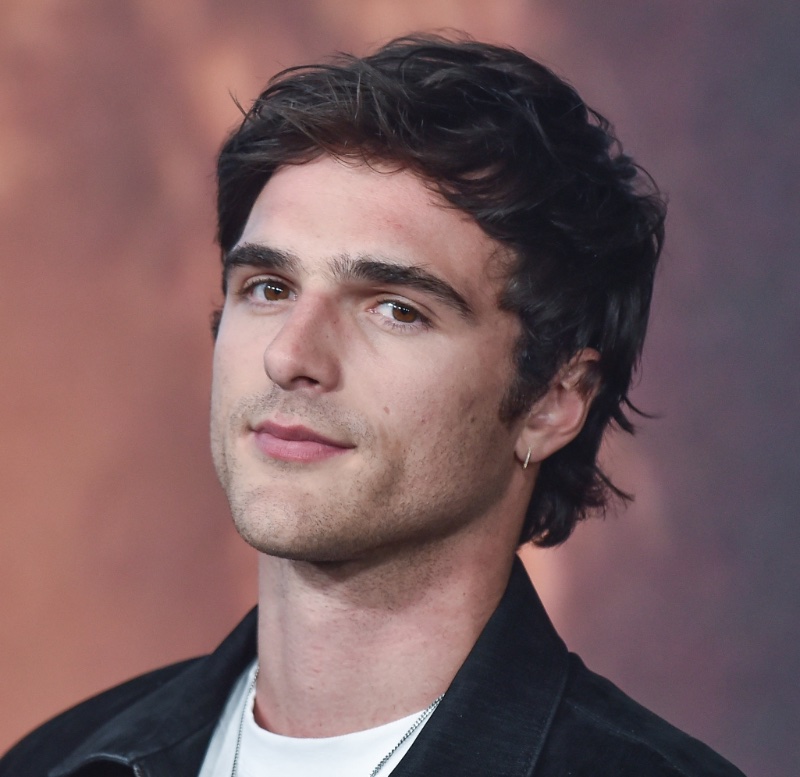
Jacob Elordi, best known for his roles in Euphoria and Saltburn, carries the mullet with a modern finesse that resonates with Gen Z. His take on the hairstyle is less about nostalgia and more about reinvention, crafting a current and charismatic look.
Elordi’s shaggy mullet features a softer texture and a natural flow, moving away from the stark contrasts traditionally associated with the style. It’s a more subdued interpretation, offering a versatile look that can transition from on-screen roles to the red carpet.
Joe Keery
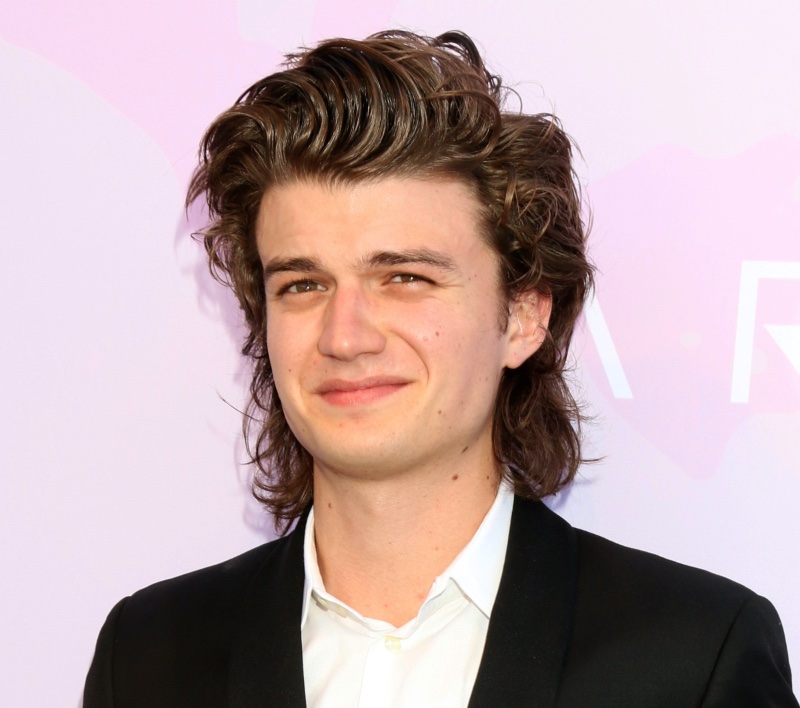
Joe Keery, known for his role in the hit series Stranger Things, has become as well-known for his distinctive hair as his acting prowess. His modern interpretation of the mullet balances retro and current hair trends, characterized by voluminous waves that sweep back into a more subdued, textured flow down the neck.
This contemporary version of the mullet is less about stark contrasts and more about a seamless gradation that offers a nod to the past while firmly grounding itself in the present. Keery’s hair reflects his character’s development and the broader 1980s nostalgia that Stranger Things encapsulates, yet it also has a timeless quality that transcends the show’s setting.
Paul Mescal
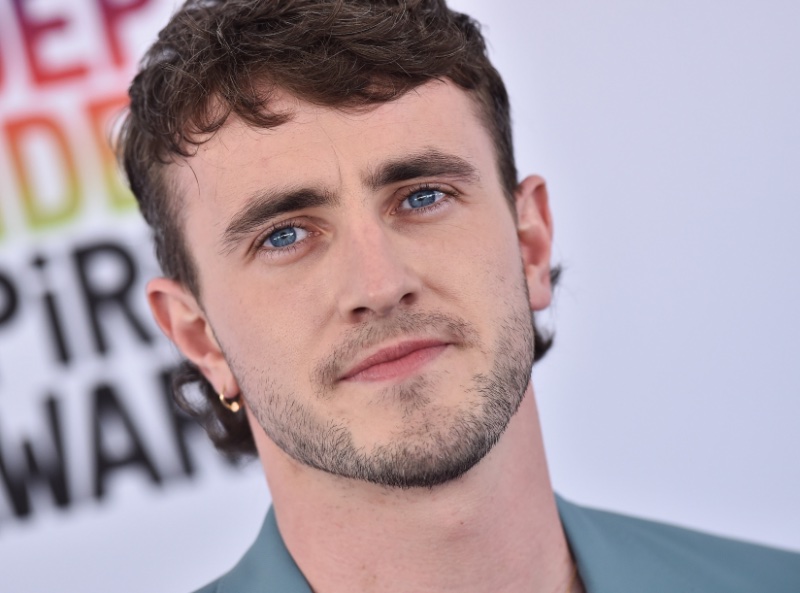
Paul Mescal, the breakthrough actor whose performances have garnered critical acclaim, has adopted not just any mullet but one reimagined for today’s fashion sensibilities. His take on this iconic haircut softens the typically stark contrast of lengths, showcasing a more graduated transition.
The gentle waves of his hair are meticulously styled to create texture. Mescal’s interpretation is in harmony with current trends, striking a delicate balance between homage and evolution. The mullet, once seen as a relic of the past, is now celebrated as a versatile and fashionable choice, thanks partly to Mescal’s refined style.
Embracing the Modern Mullet Haircut
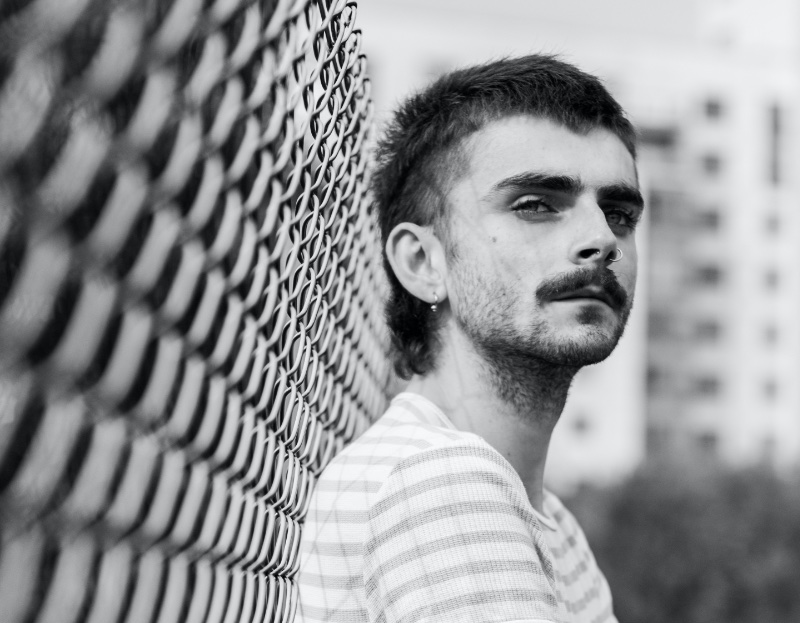
The journey of the mullet haircut, from its heyday in the hands of celebrities to its resurgence in contemporary fashion, is a narrative of reinvention and enduring appeal. This hairstyle, often the subject of both admiration and debate, has proven its versatility and adaptability, maintaining relevance in an ever-changing world of style.
The mullet’s ability to morph with the times, taking on new textures and forms, underscores its status as a symbol of individuality and collective fashion memory. The ideal mullet inspires and challenges in all its styles, inviting men to explore and express their unique styles.
